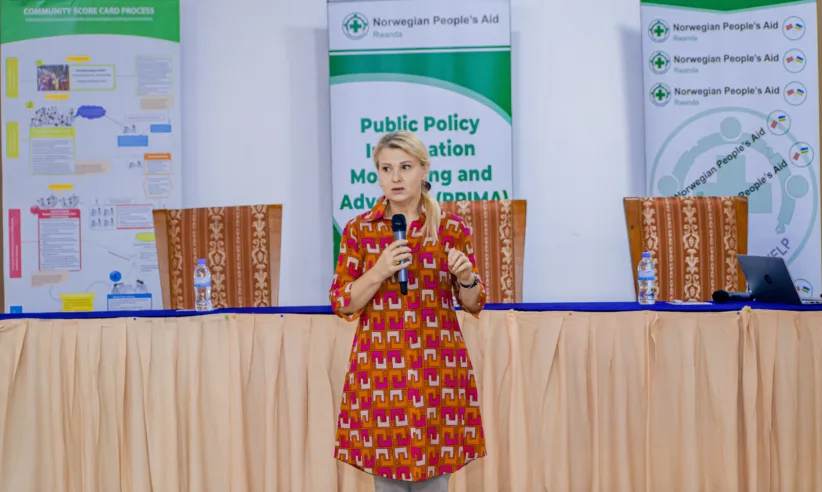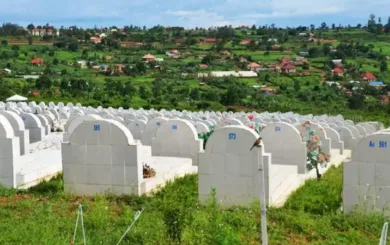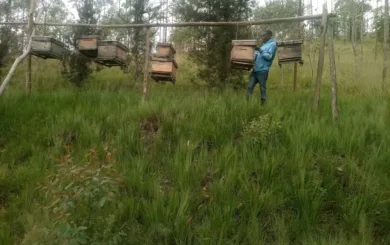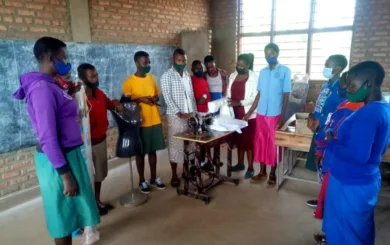Rwanda
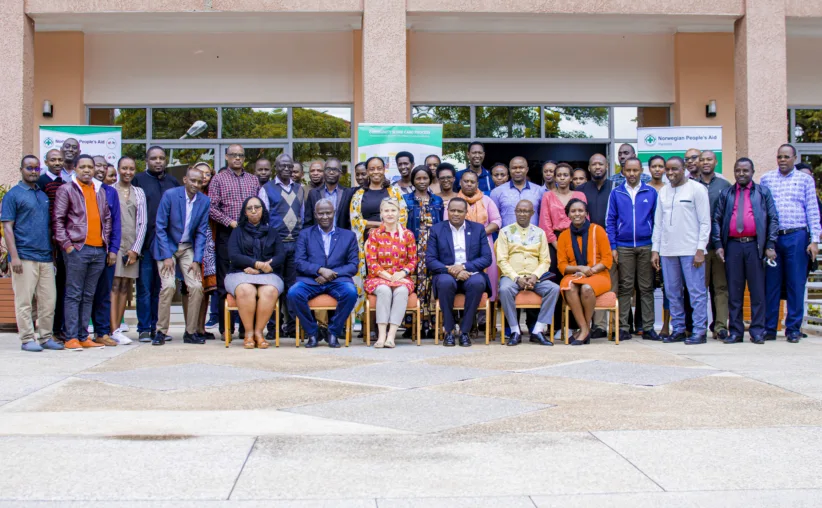
NPA’s Rwanda Programme began immediately after the genocide against the Tutsi in 1994 and until 2006 its main focus was on the direct implementation of post-genocide reconstruction activities in the health and justice sectors. In terms of health, this entailed providing direct support to hospitals and promoting access to affordable healthcare. While in the justice sector, this included constructing a prison, court and prosecution offices at the district level, while more generally offering support and capacity building within the national court system.
From 2007 NPA adopted a partnership model, with the overriding aim of supporting and developing the capacity of what was then a weak fledgling civil society with a very limited understanding - beyond service delivery and charitable giving - of the important role CSOs play in nurturing and upholding positive values in areas like anti-corruption, gender equity, poverty eradication, tolerance and promoting democracy.
A couple of years later in 2009, the PPIMA (Public Policy Information, Monitoring and Advocacy) project was born which accounted for about 70% of the Country Programme with support from SIDA and DFID (FCDO) and was complimented by NORAD-funded activities until 2019 which focused on gender equality and gender-based violence.
PPIMA activities during the past three phases and which have spanned a decade since 2009 have supported citizen participation, access to justice and civil society research and advocacy linked to a variety of issues relevant to democracy and human rights. Now, as of 2020, we have entered a new phase and will adopt a different approach, prioritizing inequality and equal access to economic, political and social rights for all but particularly vulnerable and marginalized members of Rwandan society while ensuring that participatory and democratic systems and mechanisms are in place and are utilized by all stakeholders to uphold those rights.
To achieve this, the Country Programme has brought all funding sources together under one PPIMA Programme umbrella and which therefore now represents the entire Country Programme, supported by NORAD, SDC and SIDA with secured funding for 2021 and 2022 of approximately NOK 36 million per annum.
However, it is fair to say that despite challenges that will inevitably be encountered, the Rwandan Programme has massive unexploited potential. And we, therefore, intend to adopt during the strategy period an ambitious plan to expand the PPIMA programme while delivering through Partners new activities. This will entail attracting additional funding from both existing and new donors who are willing to collaborate with NPA and will result in a further broadening and diversification of our donor base. We will therefore move the Country Programme beyond just PPIMA, and therefore garner financial support for both the delivery of additional activities linked to Civil Society Development which complement PPIMA but also seek financial support to address the impact of Climate Change as well as respond to an estimated 51% of all Rwandans – 70% of who live in rural areas – living in poverty and therefore enter a new Sector, namely Rural Development, respond in a more hands-on way to inequality, and expand the presence of NPA funded activities through Partners to a minimum of two-thirds of the country (i.e. at least 20 districts).
The intended outcomes of NPA’s future programming in Rwanda will respond to several SDG targets and indicators. For example, under SDG 1 the expanded programme will support the creation of sound policy frameworks to support accelerated investment in poverty eradication actions while promoting best practices and enhanced livelihoods within the agricultural sector. Under SDG 5, work undertaken by partners will also contribute to the elimination of all forms of violence against women and girls, ensure women’s full and effective participation and equal opportunities at all levels of society and ensure gender equality policies are fully implemented. The future strategy will also aim to reduce inequality (SDG 10) by addressing mechanisms for inclusion, particularly in terms of marginalized groups. While an expansion of activities linked to combating climate change will be implemented and we will ensure pro-environmental measures are mainstreamed throughout the entire Programme and thus contribute to SDG 13 Climate Action. And on SDG 16, we will continue to promote a peaceful and inclusive Rwanda, ensuring responsive, inclusive, participatory and representative decision-making at all levels. And finally on SDG 17, and underpinning all that we do, we will continue to strengthen Rwandan CSOs through ongoing capacity building.
NPA works alongside partner organizations in the following project:
The Public Policy Information, Monitoring, and Advocacy (PPIMA) project bring 14 local partner organizations together in a unique collaboration to make citizens aware of their basic rights and to give them the skills they need to be able to engage in positive action to raise their points of view and interests with decision-makers and service providers. PPIMA organizes debates and dialogue between citizens and decision-makers on issues ranging from legislative proposals and local and national budget plans to the needs citizens have about providing for themselves and their families. The project is financed by SIDA, SDC and Norad.
DONORS

Norwegian Agency for Development Cooperation (NORAD)
The Norwegian Agency for Development Cooperation (NORAD) is a directorate under the Norwegian Ministry of Foreign Affairs. In matters regarding Norway's International Climate and Forest Initiative, Norad reports to the Norwegian Ministry of Climate and Environment.
Norad's functions are laid down in the agency's terms of references and annual letters of allocation issued by the Ministry of Foreign Affairs and the Ministry of Climate and Environment.
Norad works to ensure effective foreign aid, with quality assurance and evaluation. Norad finances NGOs and does its own research and projects.

Swedish International Development Cooperation Agency (Sida)
The Swedish International Development Cooperation Agency (Sida) consists of eight departments, an internal audit, and the Director-General's office. Five departments work with implementing the development assistance and three with support, steering, and control. A large proportion of the contribution management is delegated to foreign missions.

Swiss Agency for Development and Cooperation (SDC)
The Swiss Agency for Development and Cooperation (SDC) is the agency for international cooperation of the Federal Department of Foreign Affairs (FDFA). The SDC is responsible for the overall coordination with other federal authorities of development cooperation and cooperation with Eastern Europe as well as for humanitarian aid delivered by the Swiss Confederation.

The European Union
The European Union

Belgium Development Cooperation
Belgium Development Cooperation

Ministry of Foreign Affairs of Denmark
Ministry of Foreign Affairs of Denmark

UK International Development
UK International Development
NPA Rwanda Country Director
-
Senada Kahriman
-
